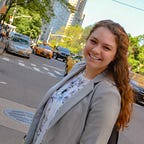School vaccination requirements meet their first deadline
By Annemarie LePard
The deadline to begin “excluding students” from attending school, if they have not received their mandatory vaccinations has passed, said Nassau County Commissioner of Health Dr. Lawrence Eisenstein at the Nassau County Board of Health meeting on Sept. 17 in Mineola.
That Tuesday marked the 14th, and final, day that children were allowed to remain in school or day care without receiving the first age-appropriate dose in each immunization series, according to a recently passed state law.
The new law also requires that within 30 days after the first day of school or day care, parents or guardians of non-vaccinated children must provide evidence that they have appointments scheduled for all the required follow-up doses.
The new law was signed into legislation by Gov. Andrew Cuomo on June 13 in order to help protect the public after the state was recently hit by the worst measles outbreak in more than 25 years. Public, private and parochial schools, and day care centers are expected to enforce this law.
“This law is for the parents, or guardians, who are purposefully avoiding vaccinations,” said Eisenstein. “The Board of Health is here to work with families who cannot get vaccines because of a lack of access or financial concerns.”
Eisenstein continued that the Board of Health does not want children to be the “victims of their parents, or guardians, misunderstandings of vaccines.”
According to Eisenstein, the Board of Health is looking out for their community’s health and safety; therefore, the new law no longer grants families exemption from vaccinations due to religious reasoning.
“The public is agitated with anti-vaxxers,” Eisenstein said.
Measles, a disease eliminated from the U.S. in 2000, is now returning to the states carried by non-vaccinated travelers. According to the Centers for Disease Control and Prevention, as of Aug. 31, there were no reported cases of measles following an outbreak that affected over 1,000 people in 30 states from Jan. 1 to Aug. 1. Eighty percent of the overall cases in the U.S were reported in New York State.
On Sept. 4, the Nassau County Board of Health was notified of a laboratory confirmed case of measles in an adult who recently arrived to the U.S. from outside the county on an international flight from JFK International Airport. The adult was exposed to measles in an ongoing outbreak in another country. The traveler, in turn, exposed 46 residents in Nassau County, according to Eisenstein.
The residents exposed are under “active monitoring,” according to Mary Ellen Goebel, administrative officer of Nassau County Department of Health.
A second case of measles was confirmed on Sept. 19 and involved a Nassau County resident. Goebel would not release the number of exposures correlated to this incident; however, she did confirm that both patients were hospitalized and are no longer considered “a risk to the public.”
The Board of Health is requiring vaccinations to protect children with weak immune systems and babies, a year and under, who are too young to get vaccinated. “Who is looking out for them if we don’t?” Eisenstein said.
The new law on school vaccination requirements is “very black and white,” said Dr. Anthony Battista, vice chair of Nassau County’s Board of Health, Dr. Anthony Battista.
Students who are excluded from attending school or any school-related events that expose them to a large population of the community, such as the SAT, are required to receive their schooling from home. Children who are homeschooled are not required by law to be vaccinated.
The Nassau County Board of Health addressed other topics including Gov. Cuomo’s recent ban on all flavored vape products in New York state, the testing of mosquitos for West Nile virus and water regulations governing contaminants.
The next regular meeting of the board will be held on Tuesday, Oct. 22, at the Nassau County Department of Health in Mineola.
